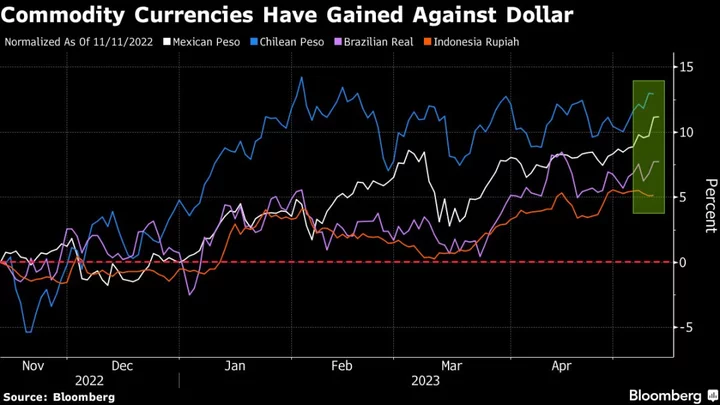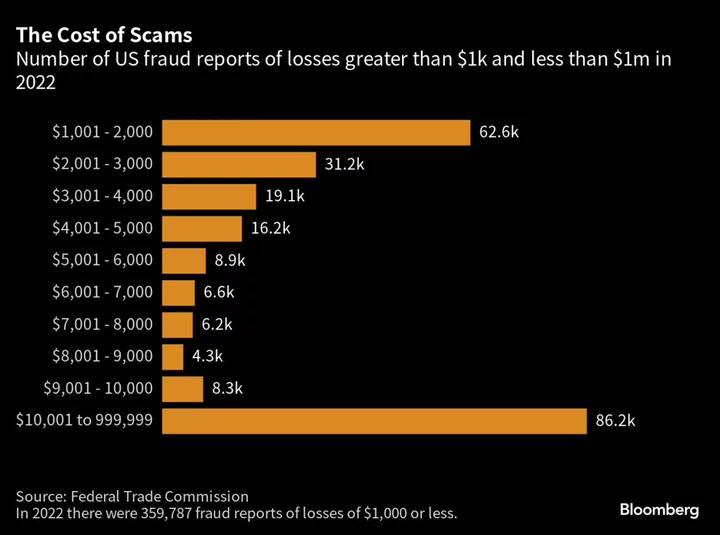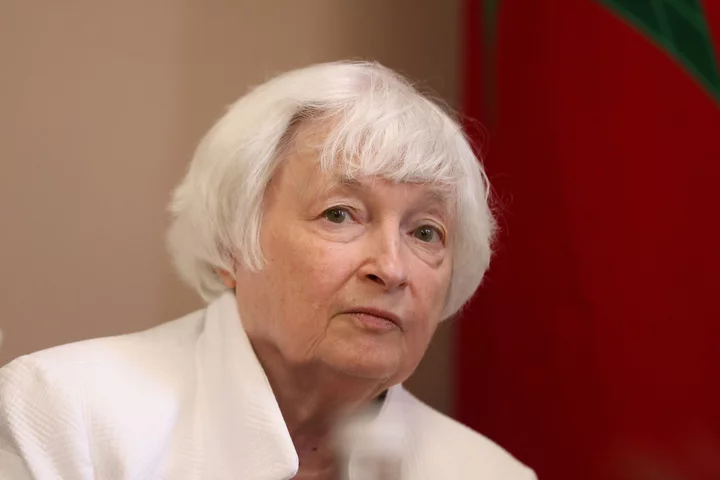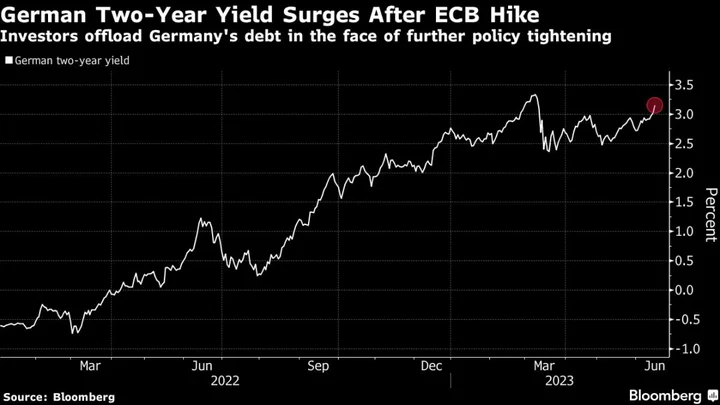Every regional bank chief is proud of their hometown, but one in particular is confident that the charm of Japan’s ancient capital will attract talent to help the company navigate rising interest rates.
Nobuhiro Doi, president of Kyoto Financial Group Inc., said his bank is preparing its staff for a situation they haven’t seen in years, as the Bank of Japan starts to let borrowing costs climb.
“Most people in our domestic lending business have no experience of negotiating with clients to raise loan rates,” Doi said in an interview. The bank is considering hiring people who have worked in a higher-rate environment, including dealers for its markets division, he said, without giving a specific number.
After enduring ultra-low rates for years, Japan’s lenders are now asking themselves whether they are ready to reap the benefits when the central bank finally reverses its stance. The Bank of Japan, which added flexibility to its yield curve control program on Tuesday, is expected to scrap its negative-rate policy in coming months, a move that would boost interest income at the nation’s roughly 100 regional banks.
Attracting outside talent is a challenge for regional banks given that most of Japan’s finance professionals are concentrated in Tokyo. But Doi said Kyoto, a popular tourist destination with its shrines, temples and famous cuisine, can be a magnet for those who are looking to change companies.
“There are quite a few people, even at foreign banks, who want to work in Kyoto,” Doi said. Employees of Tokyo-based companies often say they want to remain in the city after they are temporarily relocated there, he added.
Managing rising interest rates can be tricky. Kyoto Financial is among many Japanese regional banks that were hit by the US Federal Reserve’s aggressive rate-hike campaign, which has driven down the value of their foreign bond holdings and pushed up dollar funding costs.
Now the bank is putting more money back into Japanese government bonds and other domestic notes after yields climbed to decade highs. “We are doing so while curbing their durations,” said Doi, who is also chairman of the core Kyoto Bank unit.
The bank suffered negative spreads on foreign notes as short-term funding rates became higher than bond yields. That’s unlikely to happen with Japanese bonds because they are funded by ample customer deposits, according to Doi.
Doi also said the bank is looking for the right time to resume investment in foreign bonds, whose high yields are attractive. “They will become our investment target when yields stop rising,” he said.









